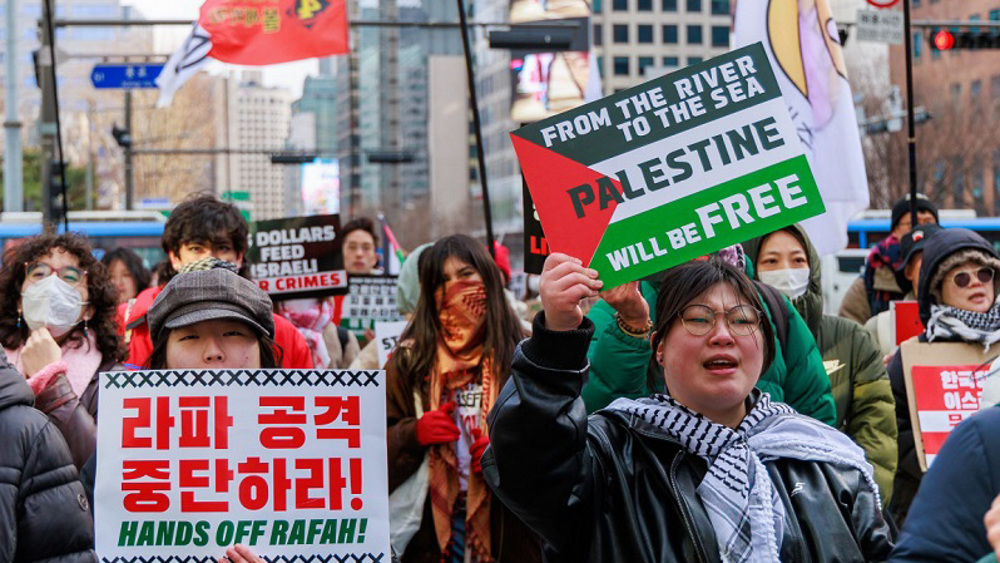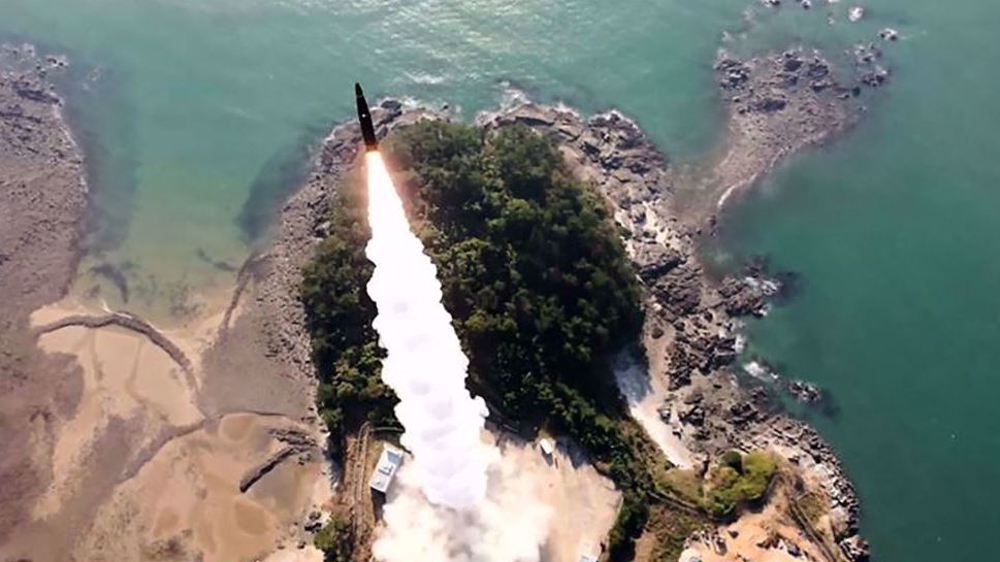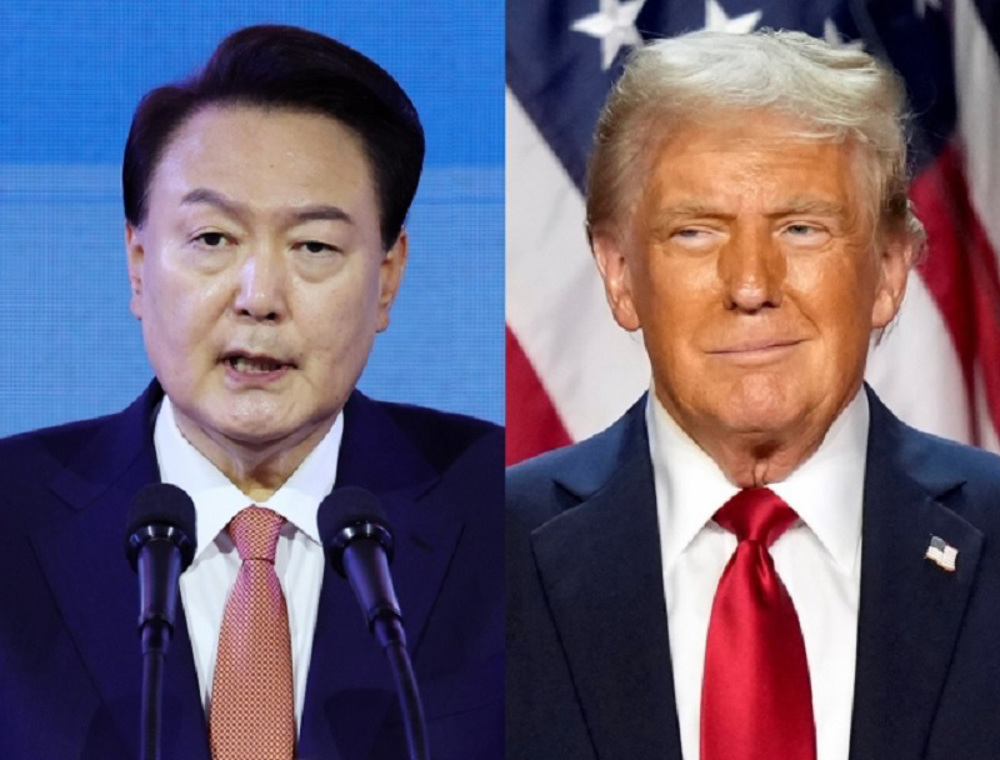Japan, South Korea fail to end trade dispute
Japan and South Korea have failed to mend a dispute that could threaten global supplies of microchips and smartphone displays, after officials met in Tokyo on Friday for a more than five-hour briefing that drew media attention for its frosty start.
Japan has tightened restrictions on the export of three materials used in high-tech equipment, officially citing what Japan has called "inadequate management" of sensitive items exported to South Korea, as well as a lack of consultations about export controls.
However, the dispute also appears to be rooted in a decades-old wartime disagreement. It comes amid deep frustration in Japan over what is seen as Seoul's failure to act in response to a South Korean court ruling ordering a Japanese company to compensate former forced laborers.
The briefing in Tokyo got off to an uncomfortable start when two South Korean bureaucrats were ushered into a narrow room in the Japanese trade ministry, where their Japanese counterparts were already seated.
Neither side greeted the other and, in front of television cameras, they faced each other in stony silence. A Japanese official later explained that the bureaucrats had earlier met and exchanged greetings. South Korean media, however, reported there was a "cold reception" for their officials, and that the meeting took place in a room that looked like a "garage."
Japan told South Korea that its trade controls system was vulnerable, the Japanese official told reporters after the meeting.
South Korea said it has proposed more talks with Japan by July 24. Japan did not say whether it would accept the request for more talks, made at a meeting in Tokyo, Lee Ho-hyeon, a director at South Korea's trade ministry, told a briefing in Seoul.
Apple Supplier
The dispute between the US allies could disrupt supplies of chips and displays from South Korea's tech giants Samsung Electronics and SK Hynix, which count Apple Inc and other smartphone makers as customers.
Japan has said the curbs on exports of the materials -- which include hydrogen fluoride and etching gas used to make chips -- were not retaliation in the feud over compensation for South Koreans forced to work for Japanese firms.
But complicating the matter are Japanese media reports that some quantity of hydrogen fluoride was shipped to North Korea after being exported to the South. Hydrogen fluoride can be used in chemical weapons.
Kim You-geun, South Korea's deputy director of national security, has said South Korea has fully enforced UN sanctions on North Korea and international export control regimes on sensitive materials and dual-use technology.
"We express deep regret that senior Japanese officials have been recently making irresponsible comments without presenting a clear basis for them, suggesting our government was violating export controls and not enforcing sanctions," Kim told a briefing.
"To halt unnecessary disputes and to determine factual basis of the Japanese government's claims, we suggest a panel of UN Security Council experts or an appropriate international organization to conduct a fair investigation into any cases of four major export control violations by South Korea and Japan."
Japanese officials have declined to comment directly on the media reports that South Korea had shipped some quantity of one of the materials to North Korea. The official who briefed reporters on the meeting said the decision on export curbs was not related to what has been reported.
South Korea's industry ministry said on Wednesday it had found 156 cases of unauthorized exports of strategic goods as of March since 2015, but none involved North Korea.
A Japanese foreign ministry official said the export curbs were not meant as retaliation in the forced-labor feud although trade minister Hiroshige Seko, in announcing the curbs, had referred to that dispute, saying South Korea's lack of sufficient response to resolve it had seriously damaged trust between them.
Japan is also threatening to drop South Korea from a "white list" of countries with minimum trade restrictions.
Relations between Washington's two Asian allies have long been plagued by memories of Japan's 1910-45 colonization of the peninsula and the war, including the matter of "comfort women," a euphemism for girls and women forced to work in Japanese wartime military brothels.
The dispute over wartime forced labor worsened last year after a South Korean court ordered Japanese firms to compensate former conscripted laborers.
Japan says the matter was settled by the 1965 treaty and by demanding compensation, South Korea is violating international law.
Many Japanese resent being urged to atone for wartime deeds of seven decades ago, while many in South Korea doubt the sincerity of Japan's past apologies.
(Source: Reuters)
VIDEO | Sydney protests demand action as Israel faces ICC warrant for war crimes
Iran to host ‘important’ ECO foreign ministers' meeting in Mashhad
Wounded in Israeli strike, health of Kamal Adwan Hospital's director worsens
VIDEO | Press TV's News Headlines
Iran reports 11% drop in domestic red meat supply
Arab League affirms support for Iraq amid Israel's threats of military action
VIDEO | Fierce fight in Southern Lebanon
Over 1000 medics killed in Gaza as Israel systematically targets hospitals











 This makes it easy to access the Press TV website
This makes it easy to access the Press TV website